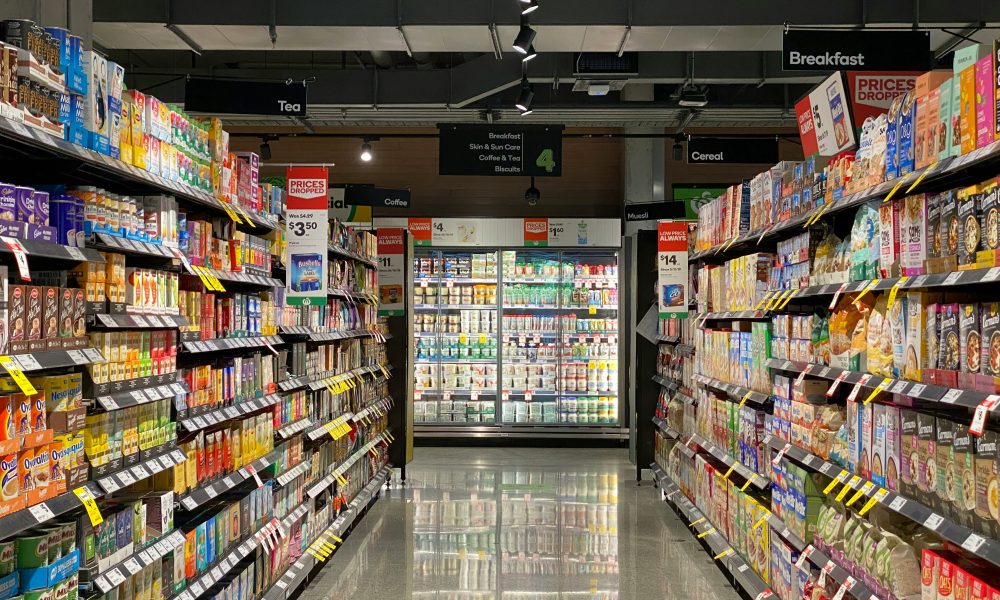Mindful Consumption: Why our Choices Matter
Have you ever paused to think about the products you place in your grocery cart? As you scan the shelves filled with everyday essentials, food, hygiene items, and clothes, what crosses your mind? Maybe price, brand, or convenience. But do you ever stop to wonder where these products really come from, what it took for them to get there, and the impact of you buying them?
When we talk about sustainability, the focus often lands on animal-based products. It makes sense, meat and dairy come with a direct, visible cost to animals. We know they were killed or exploited, and most people are at least somewhat aware of what that process looks like. Hundreds of millions of animals are killed for meat daily, which is an overwhelming number to confront, and what’s even more disturbing is how they’re treated before being killed, pumped with hormones, kept in overcrowded cages, and fed unnatural diets.
A lot of people, understandably, try to make better choices. A 2024 study by NSF shows that 67% of U.S. consumers regard animal wellness as very or extremely important in their purchasing decisions. Many are willing to pay more for meat labeled as “humane,” and some choose to cut out animal products entirely. But what about the products we don’t associate with animals, like makeup, shampoo, or even t-shirts? We rarely question where those come from. A product labeled “organic” or “cruelty-free” might still have a major environmental footprint or be made with animal testing.
This is where marketing can be manipulative. Many brands rely on greenwashing, using imagery or labeling that makes products look eco-friendly when they’re not. Greenwash reveals many companies that are guilty of this. We trust packaging more than we should, and that trust often blinds us from the truth.
When I was a kid, my mom was a strict vegan. I remember her telling me how hot dogs were made while I was eating one. It frustrated me. It felt like she thought she was morally better than me, and honestly, what made it worse was that I agreed with her. I felt guilty. So, to deal with that guilt, I rebelled, I started eating more meat, and even made fun of vegans. “You think you’re better than me? Fine, I’ll eat enough meat for both of us.” That way of thinking became my defense. I started to believe that one person can’t make a difference anyway, so why even try? But that mindset is dangerous. I’ve met other people who think the same way, it’s all or nothing. Either you go completely vegan or you do nothing at all. We feel bad for animals, but if we don’t think we can fix everything, we shut down and keep doing what’s easiest. The truth is, it doesn’t have to be all or nothing.
You can care about animals and still eat meat. Environmental consciousness doesn’t stop at the meat you eat. Many other industries hurt wildlife just as much as the food we eat. It’s about balance and being aware of the impact your choices have. For example, air pollution that comes from the cars we drive and plastic pollution as a result of the materials in most of the products we buy, both negatively affect wildlife on a drastic level. Even the most environmentally conscious person can’t avoid harming animals entirely. But that doesn’t mean we shouldn’t try at all. Small choices still matter.
Maybe it means buying from more ethical brands and researching if their claims of sustainability are true, eating less meat and dairy, walking instead of driving, or using a reusable water bottle. It could also be supporting local zero-waste stores like Uvida in Boston that offer eco-friendly products. No, you won’t save the whole planet by yourself, but you’ll make an impact in your community, and even if you can’t see it, your efforts do help.
We aren’t trying to save the planet just for the planet’s sake, we’re trying to save it for ourselves, our future, and the animals we share it with. The goal should be understanding the impact we have in our everyday choices, big or small. It’s not about being perfect. It’s about being mindful.







